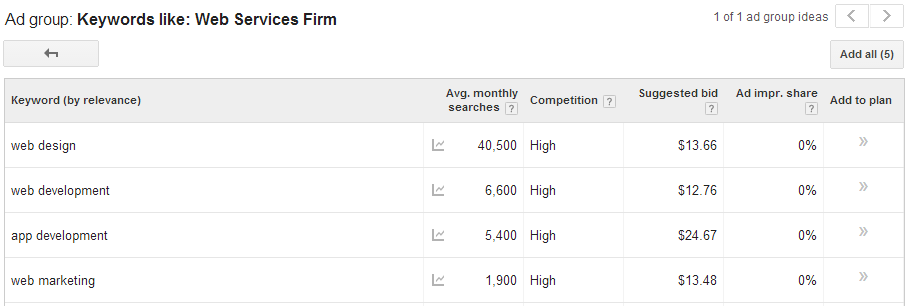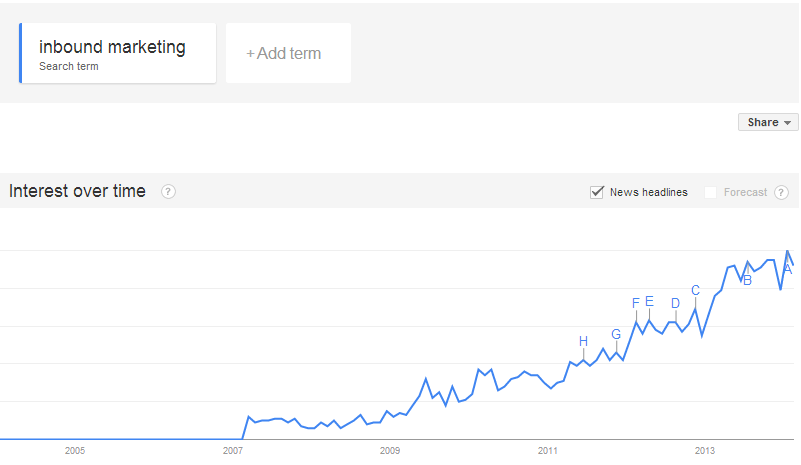In my last post, I offered three reasons why keyword rankings aren’t as important as you think they are. Those reasons are:
- People can get to your site from sources other than a search engine.
- Top rankings don’t necessarily equal more traffic.
- Top rankings don’t necessarily equal more business (this is the most important reason).
Specifically, the point I was trying to make is that keyword rankings aren’t important unless they generate meaningful results for your company. So, to help you make the connection between a ranking and keyword quality, I’ve provided some tips for your reading pleasure.
Focus on what you can control
A wise man once told me that it was frivolous to worry about the things that are outside of your control. It’s great advice, and it definitely applies here. You have no control over where your website ranks. The search engines do. If they decide to tweak their ranking formula – which they do on average more than once per day – you may lose your rankings even if you made a concerted effort to be “above board” with your optimization efforts.
To mitigate your risk here, I suggest focusing on something that you can control: Your website’s user experience. Is your navigation useful? Is your content skimmable? Do you incorporate images and videos? Do you have strong calls to action? Does your site load quickly?
Focusing on controllable things like this can benefit you because a good user experience can encourage more of your visitors– regardless of how they got to your site - to become a lead or to buy something. So even if your rankings drop, you’re giving yourself a fighting chance to survive because you haven’t neglected the business opportunity presented by the people who get to your site from other sources.
Use the Keyword Planner Tool and Google Trends
If you’re worried that the keywords you’re targeting don’t have a lot of search volume, you can use Google’s Keyword Planner Tool and Google Trends to find out for sure.
The Keyword Planner Tool is part of Google AdWords, but it can be used for both PPC campaigns and for organic optimization efforts as long as you've signed up for an AdWords account. Just log in to your account, go the Keyword Planner Tool website, click on the “Get Search Volume for a list of keywords or group them into ad groups” button and type in the word or words you’re trying to rank for. The report will show you an estimated average number of times the words are searched for in a given month.

Google's Keyword Planner Tool helps you see estimated search volumes for specific keywords.
Google Trends is another great resource. Unlike the Keyword Planner Tool, which gives you search volume numbers, Google Trends will show you an “interest score” for the keywords entered. Generally speaking, words with an interest score closer to 100 are being more widely searched, which means there’s more traffic and business-generating potential.

Google Trends data indicates a rising interest for the term "inbound marketing."
Use Google Analytics and Ranking Report Tools Together
It is true that Yahoo! and Google’s decisions to block organic keyword data makes it more difficult to understand which keywords are generating more business for you. However, you can still infer a keyword’s value if you combine Google Analytics annotations and goal/event/e-commerce tracking with a solid ranking report tool.
In essence, when you make optimization efforts around a certain keyword, you can denote it as an annotation in Google Analytics. Because annotations also track the specific day a change was made, you can check to see if there was an increase in leads/sales and whether there was improvement in rankings after the marked date. If you see improvement in these areas, you have strong evidence that the keyword you’re targeting is valuable.

This annotation clearly shows that changes made had a positive impact on the client's goals.
For reference, Authority Labs is a widely used keyword rankings tool. And on a related note, I wrote a blog post a few months back explaining how you can get around Google’s decision to block organic keyword data. If you missed it, or if you need a refresher, make sure you take a look!
I hope these tips help you make the connection between a keyword’s ranking and a keyword’s value. If you have additional tips, leave them in the comments below.


